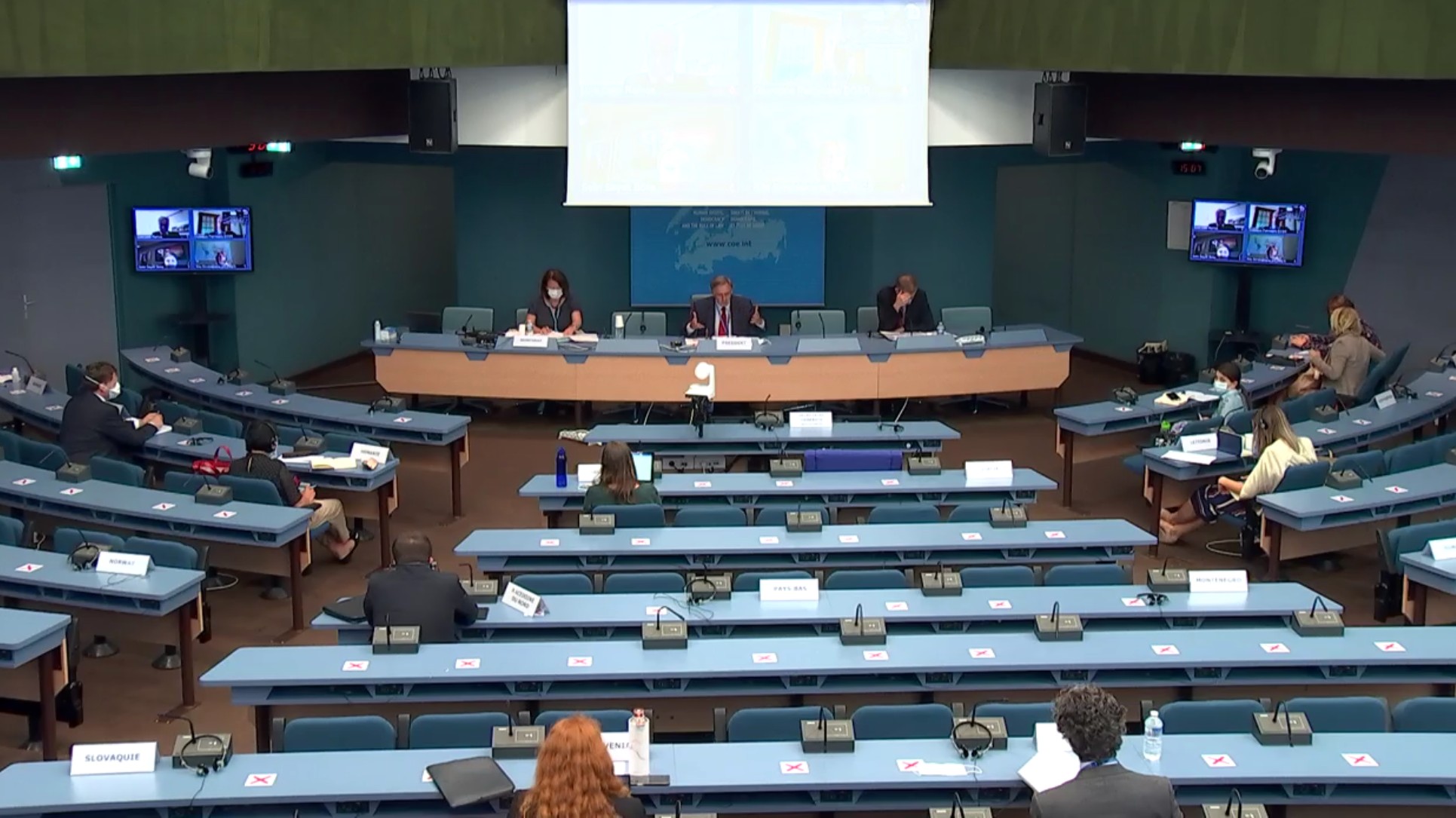The President of the European Committee of Social Rights (ECSR), Giuseppe Palmisano, and the Chair of the European Platform for Social Cohesion (PECS), Rita Skrebiškienė, participated on 23 June 2020 in an exchange of views on the impact of the COVID-19 crisis on social rights and social cohesion, organised at the initiative of the Chair of the Rapporteur Group on Social and Health Questions (GR-SOC).
In his statement, Giuseppe Palmisano reiterated that the Covid-19 crisis painfully revealed that preparedness is all about social rights and therefore about the European Social Charter. He reminded the participants that pandemic-readiness requires universal health care and well-equipped and resourced, resilient public health services, health and safety at work, arrangements to ensure protection of the rights of older people, employment security, a minimum income and adequate guarantee of the right to housing, adequately resourced and solid public education and the protection of children. “All these requirements are inherent in the Social Charter and fulfilling them is crucial when confronted with a crisis such as this one. Compliance should be the default setting”, emphasized Giuseppe Palmisano.
The Charter and its procedures are key governance instruments for member states to be best informed and equipped to take the best possible decisions in all areas which are covered by the Charter. “it is essential that states parties are resolved to follow the spirit of the Charter and the Committee’s findings to improve social rights and implement changes in order to bring the situations of non-conformity detected by the Committee into line with the Charter. That would add to their preparedness for any crisis”, pointed out Professor Palmisano.
Rita Skrebiškienė, Chair of the PECS, focused her intervention on two aspects: impact of the COVID-19 pandemic on social rights and social cohesion and recovery form the crisis. She recalled that the crisis had significant negative consequences for all Council of Europe member states and beyond. When the pandemic hit, those most in need were agonisingly and embarrassingly neglected and let down because social services were not equipped to provide the minimum safety net. The most vulnerable groups faced exceptional difficulties in this respect. In some cases, the crisis revealed discrimination and inequalities that were ignored or invisible, in other cases discrimination and inequality increased.
Regarding recovery, Rita Skrebiškienė emphasised the importance to learn from the past. New polices and measures should be put in place to address the specific needs of vulnerable groups in terms of social security, health care, employment, poverty and income inequality, education, access to justice etc.
She noted the guiding role of the European Social Charter in this process and the need to use this and other Council of Europe relevant tools effectively. She called member states to renew their commitments for solidarity, democracy and wellbeing and strengthen cooperation with other national and international actors.




